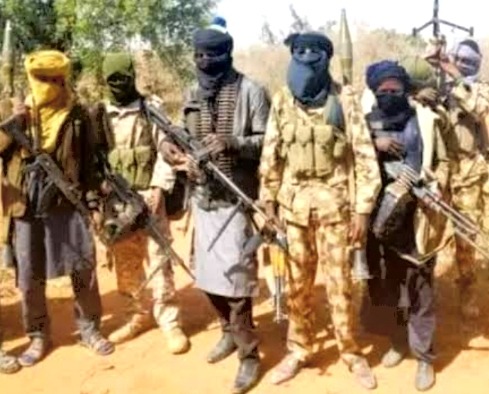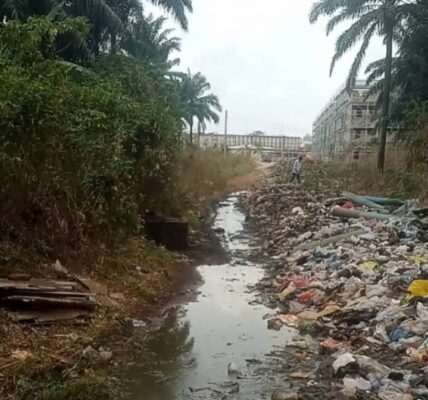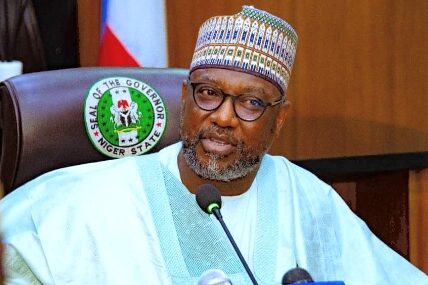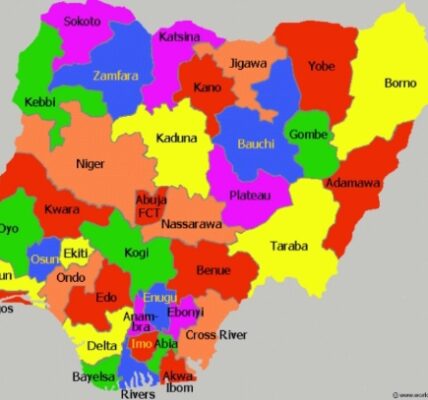Intersociety Declares Itself Nigeria’s Data Warehouse on Religious Violence as Ekwenche Research Institute, USA, Endorses Credibility of Its Data
This post has already been read 263 times!
The International Society for Civil Liberties and Rule of Law (Intersociety) has reaffirmed its position as Nigeria’s data warehouse for monitoring and tracking human rights violations, especially religious violence, earning a rare international endorsement from the U.S.-based Ekwenche Research Institute, which described Intersociety’s data and findings as “impeccable” and “professionally interpretable.”
In a detailed report issued in Enugu and signed by its principal officers, including Emeka Umeagbalasi, a Criminologist/Researcher and Head; Obianuju Joy Igboeli, Esq. the Head, Dept. of Civil Liberties and Rule of Law; Chidinma Udegbunam, Esq., the Head, Dept. of Campaign and Publicity; Ogochukwu Obi, Esq., and the Deputy Head, Dept. of International Justice and Human Rights, the organization stated that it has, since 2010, remained Nigeria’s leading research-driven watchdog on egregious human rights abuses, religious persecution, and state and non-state actor violence.
According to the group, “We are Nigeria’s data warehouse in monitoring and tracking egregious and grisly human rights abuses and violations, especially Religious Violence.” It stressed that religious persecution in Nigeria is not restricted to Christians alone, recalling its 2015 intervention on behalf of persecuted Shiite Muslims killed in Zaria by the Nigerian Army, when over 900 people were massacred and buried in mass graves.
Intersociety’s Advocacy and Data Methods
The organization explained that it employs a six-pronged approach involving extensive research, eyewitness verification, field data collection, and analysis of both local and international reports. This scientific and criminological methodology, Intersociety said, ensures reliability, transparency, and consistency in its publications.
The group further emphasized that its work is grounded in principles of punitive, restorative, and compensatory justice, aimed at identifying perpetrators and securing justice for victims and affected communities.
Ekwenche Research Institute Endorses Intersociety’s Credibility
In a major international validation of its work, the Ekwenche Research Institute, a United States–based nonprofit established in 1998, released a strong statement of support on Sunday, October 12, 2025.
The Institute said:
“Ekwenche Research Institute, a United States of America not-for-profit institute since 1998, hereby boldly certifies the impeccable nature of data output from Intersociety, including the interpretations and discussions with adjoining conclusions from their findings as offered. We boldly stand with you as Nigeria’s Data Warehouse with full unreserved endorsement as described above.”
@Ekwenche, 12th October 2025.
The endorsement, observers say, places Intersociety among the most credible African-based human rights data organizations recognized internationally for accuracy and consistency.
Appreciation for International Religious Freedom Advocates
Intersociety extended gratitude to global religious freedom voices and advocacy organizations in the United States, Canada, and Europe for their solidarity with persecuted Christians and other faith communities in Nigeria. The group highlighted the significance of the December 2020 U.S. designation of Nigeria as a Country of Particular Concern (CPC) during the Trump administration, citing it as a milestone acknowledgment of the worsening persecution in Nigeria.
Intersociety, however, condemned the Nigerian government’s continued denials and hostility toward such international advocacy, describing the administration’s reaction as “self-indicting” and “evidence of complicity.”
The group also faulted the Muslim-Muslim presidency arrangement under President Bola Ahmed Tinubu as “factually inconsistent with Nigeria’s secular constitutional foundation,” arguing that it projects a dangerous message of exclusion and religious bias.
Call for International Justice and Accountability
Citing the Principle of Complementarity and Zero Impunity under the ICC Statute and the Geneva Conventions, Intersociety called on the International Criminal Court to investigate Nigeria’s failures and prosecute those responsible for religious persecution.
The group warned that without urgent intervention, “Christians and Christianity-affiliated cultures may face extinction in Nigeria within fifty years, by 2075,” and renewed its appeal for the redesignation of Nigeria as a Country of Particular Concern, while labeling jihadist groups such as Fulani herdsmen and their enablers as Entities of Particular Concern.
Fresh Killings and Updated Reports
According to Intersociety, at least 54 Christians were killed between August and October 2025 in Kaduna, Imo, and Benue States. Victims included three Christian farmers in Benue, a Prophetess and 19 members of her prayer ministry in Imo State, and multiple villagers slain in Southern Kaduna and Awgu, Enugu State.
The group’s updated data further reveals that an estimated 125,000 Christians and 60,000 nonviolent Muslims have been killed across Nigeria since July 2009, with over 19,100 churches destroyed.







